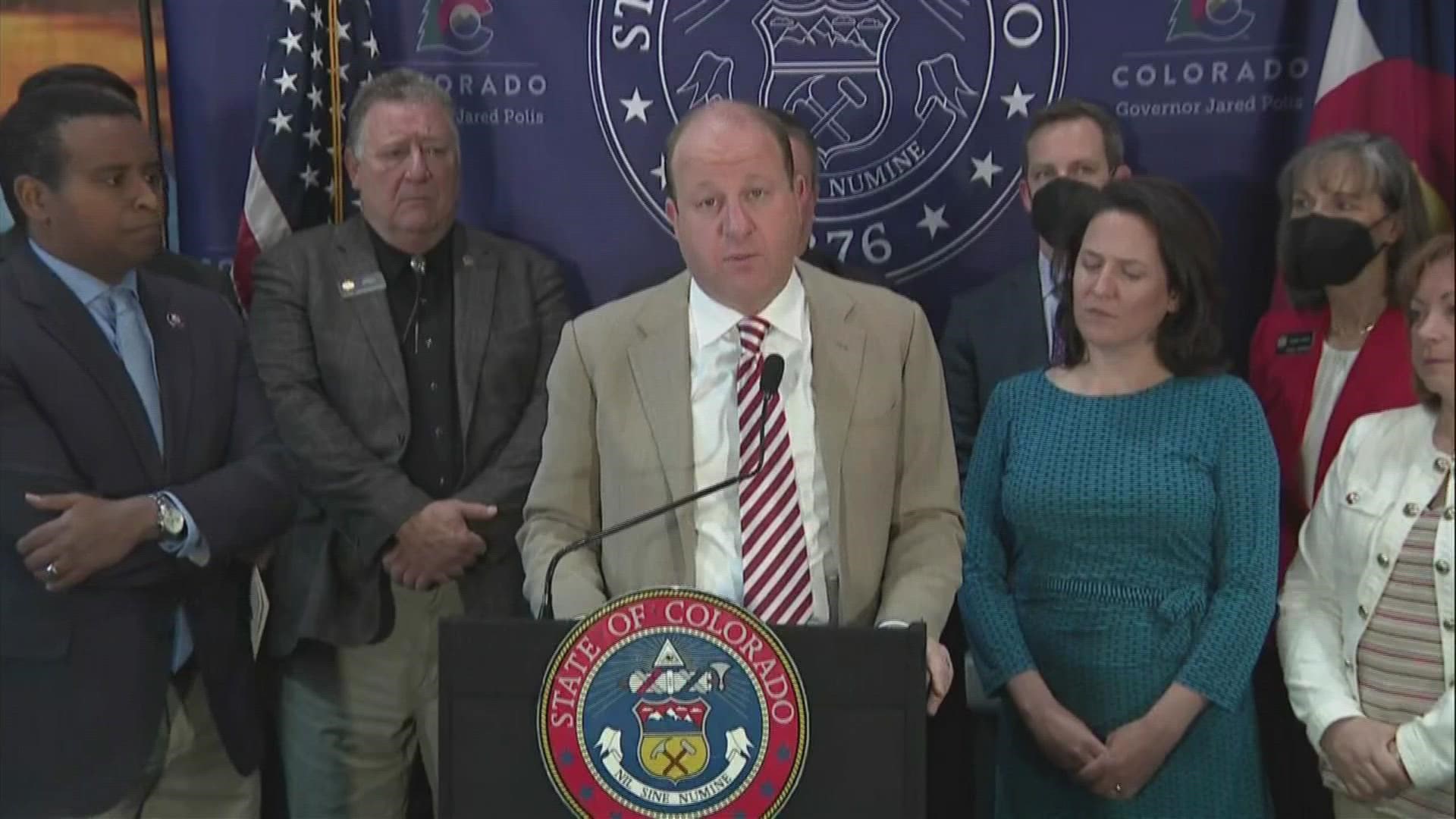DENVER — State and local leaders talked Friday about what they're doing to help homeowners and businesses that have lost property to wildfire and long-term preparations as Colorado's fire season becomes year-round.
The dozens of wildfires already this year and the extreme fire danger in the state Friday are only a preview of what's to come this year and in the future, they said at a news conference at the Capitol.
That comes from a combination of climate change, drought, an increase in population and more use of the state's wildlands and building in the wildland-urban interface, leaders said.
"There's no question we're living through the early stages of the climate change crisis right now," said state Senate President Steve Fenberg. "This is in many ways an emergency. We're not going to sit back and watch our state go up in flames."
> Video above: Watch the full news conference.
Fenberg is sponsoring a Senate bill (22-206) to put millions of dollars toward helping homeowners and businesses rebuild after a wildfire with more resilience and energy efficiency and to create a state Office of Climate Preparedness that would implement a roadmap for how Colorado prepares for future wildfires.
There's also a legislative effort to help homeowners who are rebuilding with issues with their insurance companies.
In addition, Rep. Joe Neguse, D-Boulder, said he's working with Sens. Michael Bennet and John Hickenlooper on the federal level for financial relief for wildfire recovery and to push for a national strategy for climate preparedness.
"Coloradans across the state are facing the same unsettling reality, which is our communities are at increasing threat," Neguse said.
In the past, Colorado has relied on the federal government to provide certain firefighting tools, which put the state in competition with other Western states. For instance, Colorado might request an air tanker but find it was already deployed to fire in another state, said Mike Morgan, director of the Colorado Division of Fire Prevention and Control.
Colorado is working on its own contracts, using savings from 2020 FEMA reimbursements, for its current air tanker and to add another air tanker, get two helicopters and improve the state's rapid response, said Gov. Jared Polis.
"We know that this issue is about more than one fire," Polis said. "It's really about tackling the increased fire threat."
That response would include a 24/7 dispatch center that Morgan said is critical to responding to wildfires more effectively.
So far this year, numerous fires have already been reported and the hottest, driest months are still ahead of us.
The news conference came on a day when extreme fire danger is forecast due to the expected strong sustained wind with frequent gusts above 50 mph. There is little firefighters can do in a situation like that, other than get out of the way and fight the fire from behind while they wait for the winds to die down.
“So we are generally low-key in our messaging and use the big words for the big days," said Greg Hanson, a meteorologist with the National Weather Service office in Boulder. "And this is one of those big days.”
Numerous counties have also put in temporary fire restrictions due to the fire risk. Later Friday morning, state leaders also expected to gather to discuss the outlook for the fire season ahead.
SUGGESTED VIDEOS: Wildfires in Colorado

